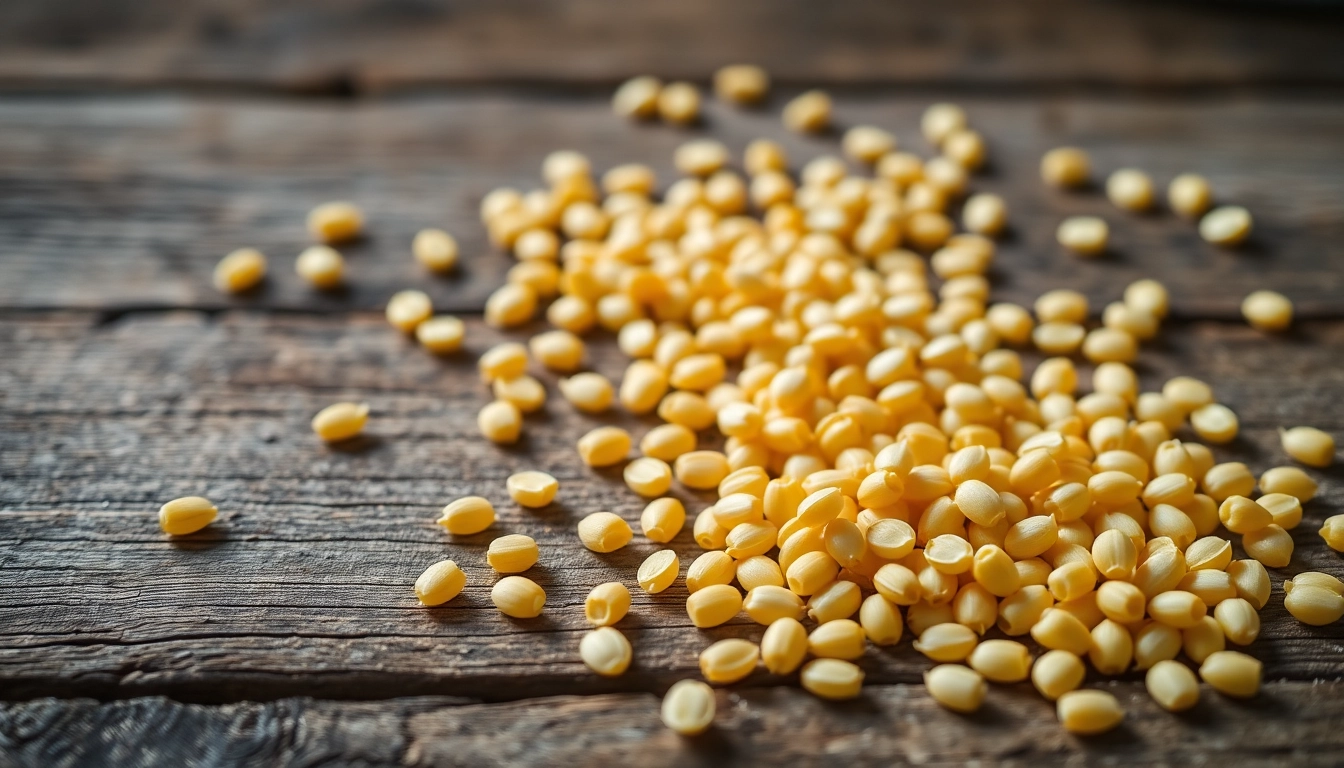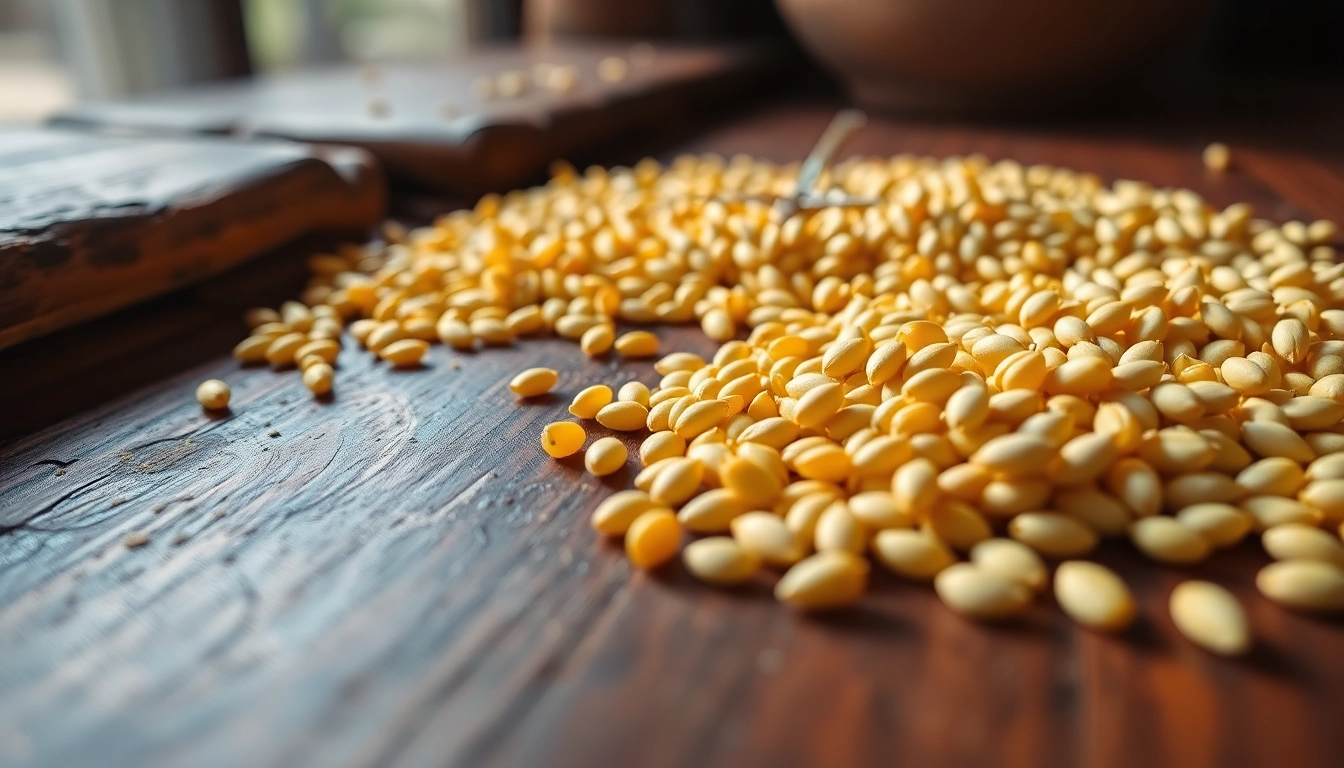Unlocking the Potential of Fennel Seeds: An In-Depth Exploration for Quality and Usage
Fennel seeds, renowned for their aromatic flavor and numerous health benefits, have been an integral part of culinary traditions across the globe. From ancient medicinal practices to modern gastronomy, these tiny seeds hold a wealth of nutritional and therapeutic properties that make them a staple in both households and industries. As a leading Fennel Seeds manufacturer and exporter, Spice Nest takes pride in offering authentic, high-quality products certified for excellence. This comprehensive guide delves into the origins, selection criteria, culinary uses, and business opportunities associated with fennel seeds, empowering buyers and industry players to make informed decisions and harness their full potential.
Understanding Fennel Seeds: Origins and Benefits
Historical and Cultural Significance of Fennel Seeds
Fennel seeds have a rich history stretching back over thousands of years with roots in the Mediterranean, Middle East, and India. Used in ancient Egyptian, Greek, and Roman civilizations, these seeds were valued not only for their culinary use but also for their medicinal properties. In Indian culture, fennel seeds are a common post-meal breath freshener and digestive aid, often served at restaurants and homes alike. Their significance extends to Ayurvedic and traditional Chinese medicine, where they are used to balance digestion, alleviate bloating, and promote overall wellness.
Nutritional Profile and Health Benefits
Fennel seeds are a powerhouse of nutrients, rich in dietary fiber, vital vitamins such as vitamin C, B vitamins, and minerals including calcium, magnesium, and potassium. Their antioxidant properties combat free radicals, reducing oxidative stress. Notably, fennel seeds possess anti-inflammatory, antimicrobial, and digestive-enhancing qualities. Regular consumption can aid in relieving indigestion, reducing inflammation, supporting hormonal balance, and promoting healthy skin. Moreover, their phytoestrogens contribute to alleviating menstrual discomfort and menopausal symptoms.
How Fennel Seeds Enhance Flavor and Health
Culinarily, fennel seeds add a sweet, licorice-like aroma that enhances a wide array of dishes—from curries and stews to baked goods. Their natural compounds, such as anethole, provide not only flavor but also therapeutic benefits like easing coughs and congestion. In wellness circles, fennel seeds are incorporated into teas, tinctures, and supplements due to their gut-healing properties. As a safe, natural ingredient, they bridge the gap between flavor and health, making them indispensable for health-conscious consumers and innovative food manufacturers alike.
Choosing and Buying Fennel Seeds: Quality Indicators
Freshness and Aroma as Quality Markers
The hallmark of superior fennel seeds is their fresh aroma and vibrant flavor. Freshly harvested fennel seeds emit a sweet, anise-like scent with hints of licorice. When selecting seeds, look for whole, unbroken grains with a glossy sheen and minimal dust or debris. The aroma should be potent and fragrant, indicating freshness, whereas stale or old seeds tend to lose their flavor and develop a dull appearance.
Types of Fennel Seeds: Whole vs. Ground
Fennel seeds are available in whole and ground forms. Whole seeds retain their aroma longer and are preferred for culinary applications that require slow infusion, such as pickling or dry roasting. Ground fennel offers convenience for quick recipes, baking, or spice blends. However, ground fennel tends to lose its potency more rapidly, so freshness is critical. For high-quality products, sourcing from trusted suppliers like Spice Nest ensures both authenticity and consistent quality.
Best Sources and Trusted Suppliers
Reliable sourcing is pivotal to ensuring quality and safety. Leading manufacturers prioritize organic farming practices, adhere to international quality standards, and invest in rigorous processing and packaging methods. At Spice Nest, we maintain stringent quality control through certifying processes, modern processing facilities, and direct engagement with farmers. Participation in major food exhibitions showcases our commitment to transparency and excellence, aiding buyers in identifying trustworthy suppliers capable of fulfilling diverse business needs.
Using Fennel Seeds in Cooking and Remedies
Popular Culinary Applications and Recipes
Fennel seeds can be seamlessly integrated into various dishes to impart their unique flavor. They are commonly used in Indian spice blends like garam masala, herbal teas, bread, pickles, and roasted vegetables. For instance, adding crushed fennel seeds to a marinade enhances grilled meat’s aroma, while infusing fennel into bread dough imparts a subtle sweetness. Simple recipes such as fennel seed-infused chai or fennel-laced cold salads are also popular for their health benefits and aromatic profile.
Traditional Medicinal Uses and Home Remedies
Across cultures, fennel seeds are celebrated for their digestive and respiratory benefits. Traditional remedies include preparing fennel seed decoctions to soothe indigestion, bloating, and gas. Chewing a teaspoon of fennel seeds after meals is a common practice to prevent bad breath and stimulate digestion. Fennel seeds are also used in herbal formulations to relieve cough and congestion, and in some regions, they are part of postpartum care remedies to support lactation and recovery.
Storage Tips for Preserving Flavor and Freshness
To preserve the aromatic integrity of fennel seeds, store them in airtight, opaque containers away from direct sunlight and moisture. Whole seeds retain their potency longer than ground varieties; therefore, grinding should be done just before use. Maintaining cool, dry conditions extends the shelf life of these seeds, ensuring they remain flavorful for up to a year or more, according to storage conditions.
Commercial Aspects: Growing, Processing, and Exporting Fennel Seeds
Supply Chain and Quality Control Standards
Efficient supply chain management and strict quality controls are vital for maintaining the high standards required in the global fennel seed market. From selecting organic farms to implementing cleaning, sorting, and packaging procedures, every step is monitored to meet international standards like ISO and HACCP. Certifications such as Organic and Food Safety certifications further reassure buyers about product integrity. Spice Nest’s robust processing infrastructure and onsite quality testing labs exemplify these practices, ensuring consistent supply of premium fennel seeds.
Market Trends and Export Opportunities
The demand for fennel seeds is rising globally, driven by increased awareness of their health benefits and the expansion of natural, organic, and plant-based foods. Emerging markets in North America, Europe, and Asia are actively seeking quality-exported fennel seeds, presenting lucrative opportunities for exporters. Trends indicate a shift toward organic and sustainably farmed fennel, which commands premium prices. Developing value-added products like fennel seed extracts, powders, and flavoring blends further enhances market reach.
Building a Brand as a Fennel Seed Exporter
Establishing a reputable brand involves adherence to international quality standards, transparent sourcing, and effective marketing strategies. Participating in global trade shows, such as Biofach, and securing certifications build credibility. Educating consumers about the health benefits and versatile uses of fennel seeds, along with offering competitive pricing and reliable logistics, can differentiate your brand. At Spice Nest, we continually innovate our packaging, branding, and product lines to meet evolving market demands and foster long-term partnerships.
Future Trends and Innovations in the Fennel Seed Industry
Organic and Sustainable Farming Practices
Sustainability is becoming a cornerstone of agricultural production, especially for spices like fennel. Organic farming methods, minimal use of synthetic chemicals, and water-efficient cultivation are gaining prominence. These practices not only improve soil health but also meet the growing consumer demand for chemical-free, eco-friendly products. Companies investing in organic certification and sustainable sourcing build consumer trust and open premium markets.
New Product Developments and Packaging Advances
Innovation in products includes encapsulated fennel extract, flavored seasonings, and functional blends that combine fennel with other superfoods for enhanced health benefits. Packaging technology also plays a vital role; vacuum-sealed, nitrogen-flushed packs extend shelf life and preserve aroma, while eco-friendly containers appeal to environmentally conscious consumers. Advanced packaging solutions such as resealable pouches and moisture-proof films improve user experience and product retention.
Global Demand and Emerging Markets
The global appetite for health-promoting spices is growing, with increasing demand in regions like Southeast Asia, Africa, and Latin America. These markets show interest in organic, high-quality fennel seeds to incorporate into traditional cuisines and herbal remedies. The expansion of health food retail segments and online marketplaces further amplifies growth opportunities. Manufacturers who capitalize on these trends through innovation and strategic branding will secure a competitive edge.

